Abstract
Rabbits immunized with haemocyanin in Freund's complete adjuvant responded in almost all cases with the formation of serum homocytotropic (reaginic) antibodies. Intravenous administration of 19S antibodies 1 day before or after antigenic stimulation resulted in an enhancement of the formation of the homocytotropic antibodies. No significant effect on the synthesis of 7S and 19S antibodies, reactive in passive haemagglutination, was observed. The results are discussed in relation to hyposensitization therapy.
Full text
PDF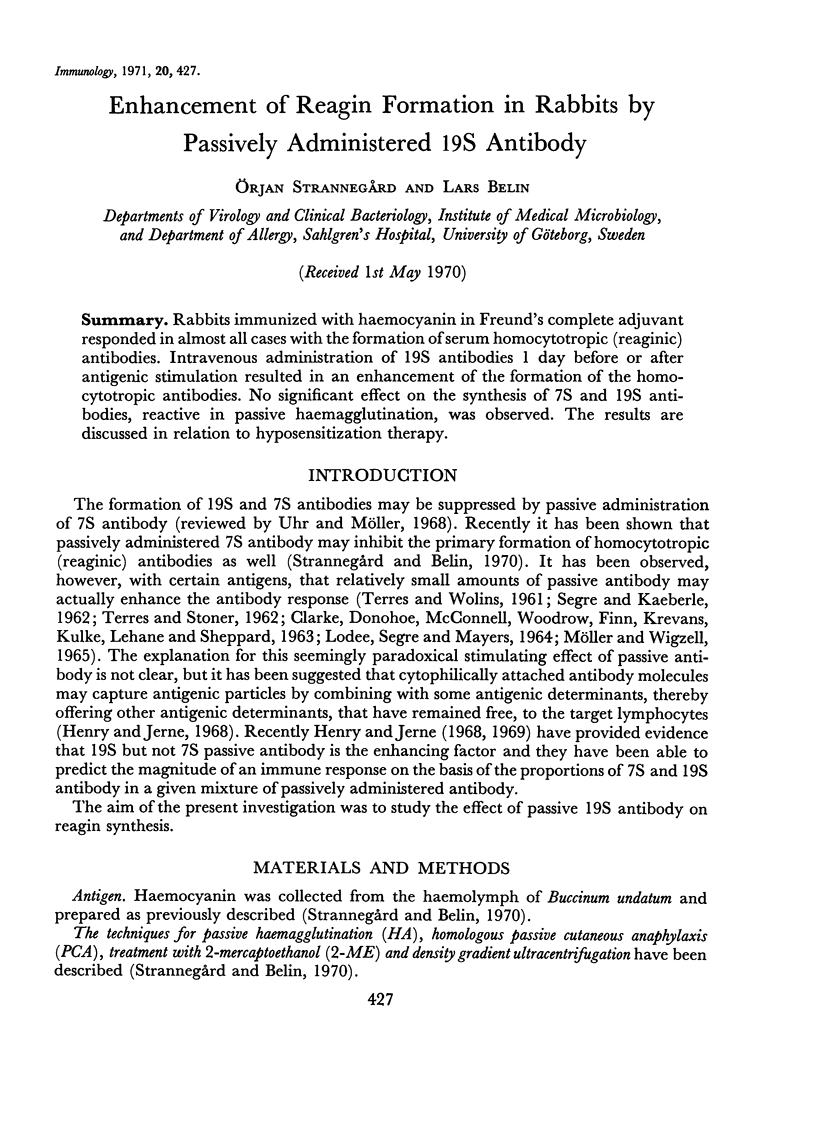
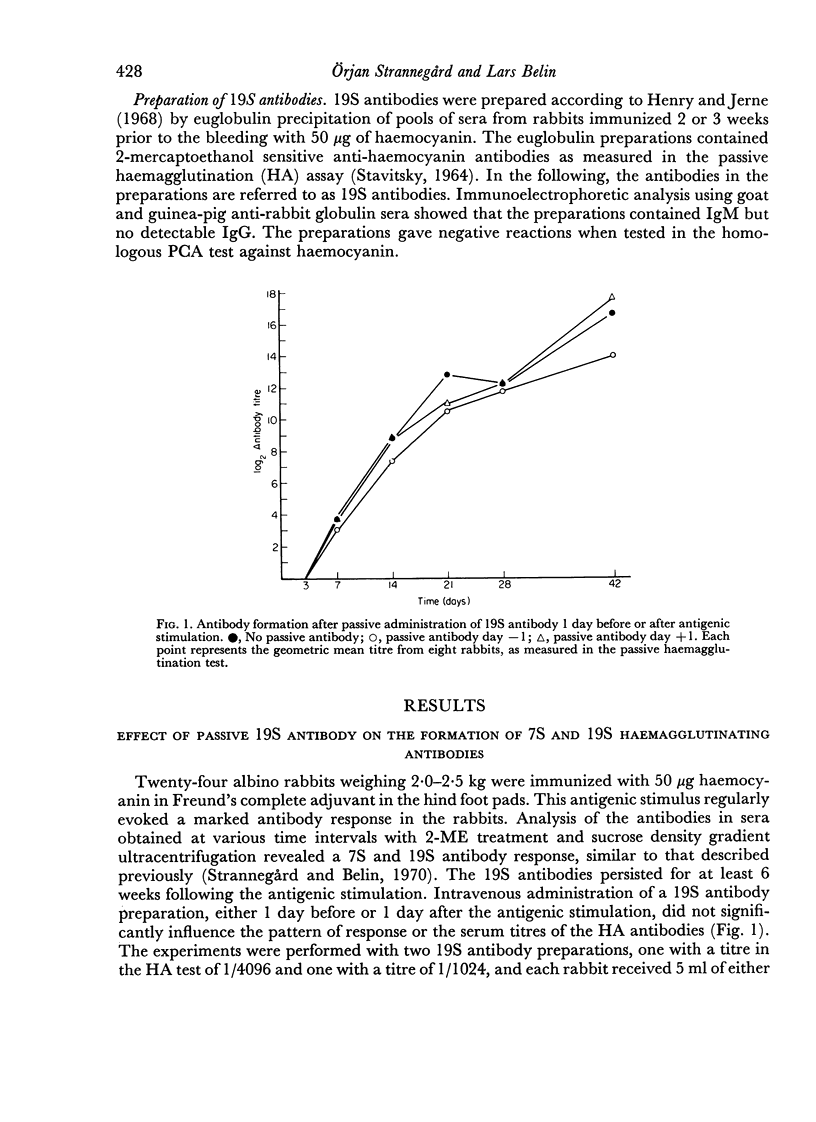
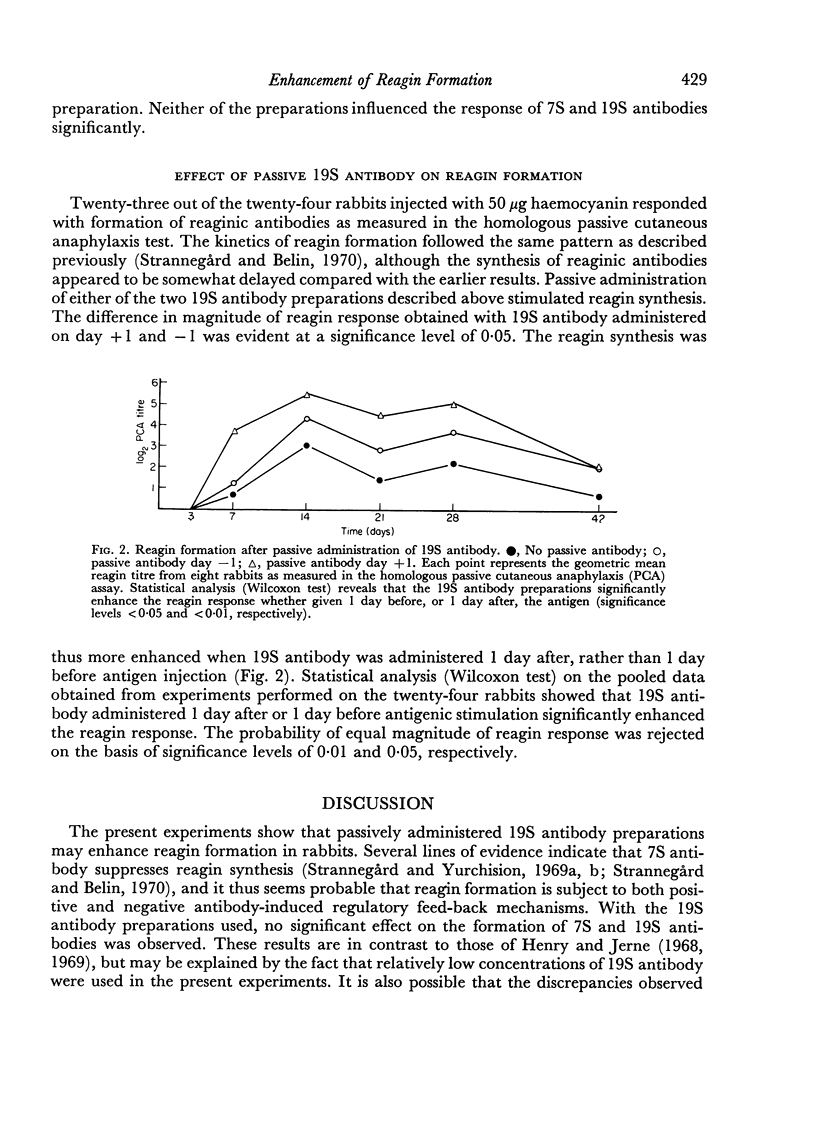
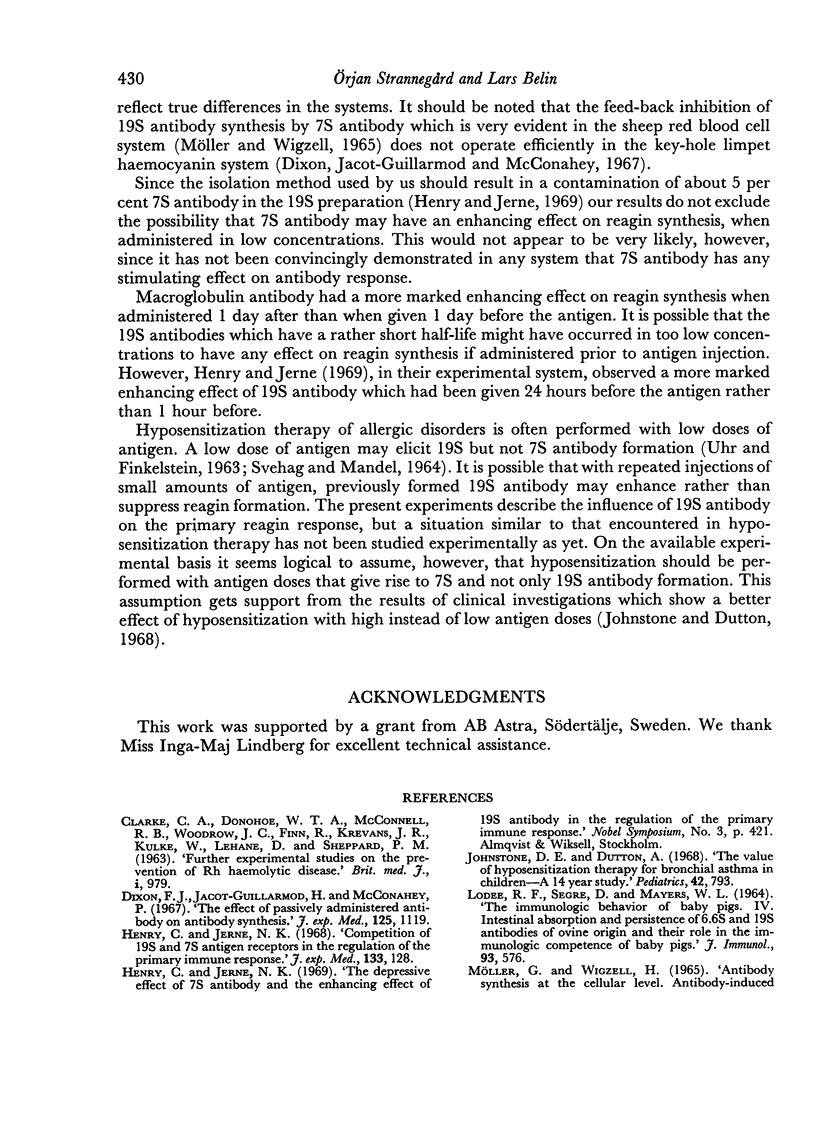
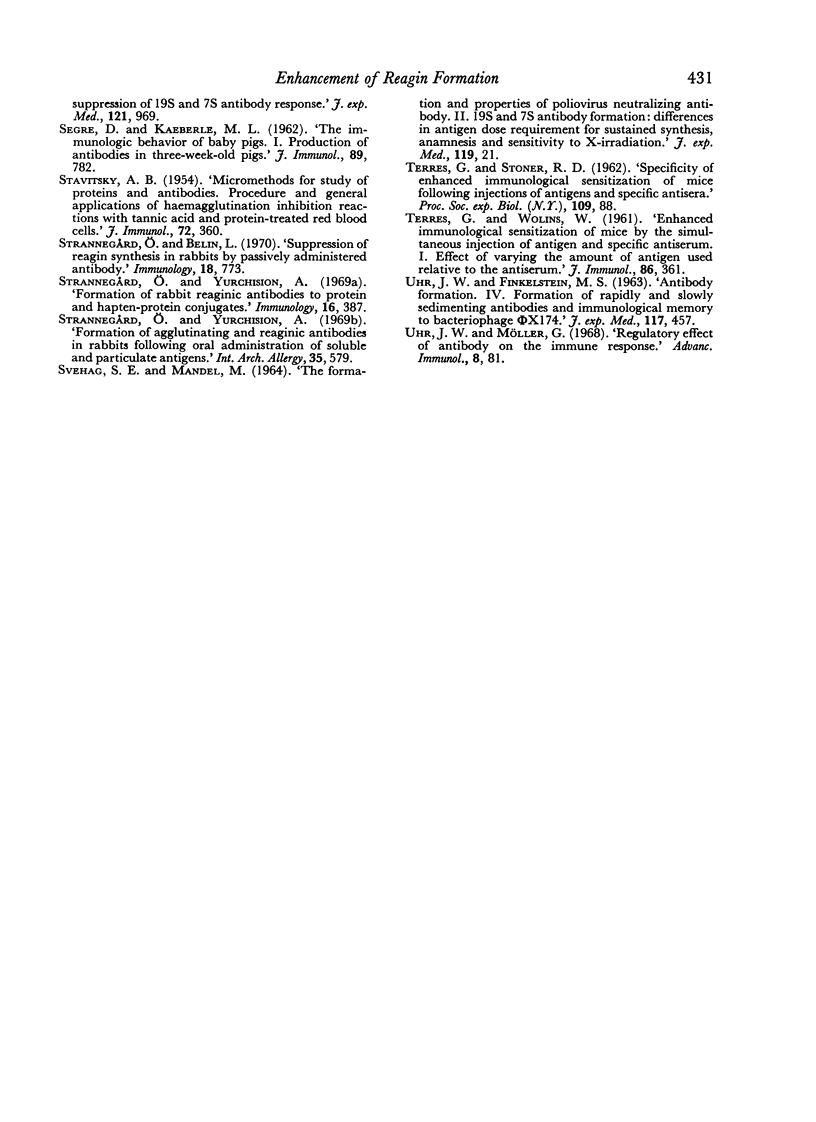
Selected References
These references are in PubMed. This may not be the complete list of references from this article.
- CLARKE C. A., DONOHOE W. T., McCONNELL R. B., WOODROW J. C., FINN R., KREVANS J. R., KULKE W., LEHANE D., SHEPPARD P. M. Further experimental studies on the prevention of Rh haemolytic disease. Br Med J. 1963 Apr 13;1(5336):979–984. doi: 10.1136/bmj.1.5336.979. [DOI] [PMC free article] [PubMed] [Google Scholar]
- Dixon F. J., Jacot-Guillarmod H., McConahey P. J. The effect of passively administered antibody on antibody synthesis. J Exp Med. 1967 Jun 1;125(6):1119–1135. doi: 10.1084/jem.125.6.1119. [DOI] [PMC free article] [PubMed] [Google Scholar]
- Johnstone D. E., Dutton A. The value of hyposensitization therapy for bronchial asthma in children--a 14-year study. Pediatrics. 1968 Nov;42(5):793–802. [PubMed] [Google Scholar]
- LOCKE R. F., MYERS W. L., SEGRE D. THE IMMUNOLOGIC BEHAVIOR OF BABY PIGS. IV. INTESTINAL ABSORPTION AND PERSISTANCE OF 6.6S AND 18S ANTIBODIES OF OVINE ORIGIN AND THEIR ROLE IN THE IMMUNOLOGIC COMPETENCE OF BABY PIGS. J Immunol. 1964 Oct;93:576–583. [PubMed] [Google Scholar]
- MOLLER G., WIGZELL H. ANTIBODY SYNTHESIS AT THE CELLULAR LEVEL. ANTIBODY-INDUCED SUPPRESSION OF 19S AND 7S ANTIBODY RESPONSE. J Exp Med. 1965 Jun 1;121:969–989. doi: 10.1084/jem.121.6.969. [DOI] [PMC free article] [PubMed] [Google Scholar]
- SEGRE D., KAEBERLE M. L. The immunologic behavior of baby pigs. I. Production of antibodies in three-week-old pigs. J Immunol. 1962 Dec;89:782–789. [PubMed] [Google Scholar]
- SVEHAG S. E., MANDEL B. THE FORMATION AND PROPERTIES OF POLIOVIRUS-NEUTRALIZING ANTIBODY. II. 19S AND 7S ANTIBODY FORMATION: DIFFERENCES IN ANTIGEN DOSE REQUIREMENT FOR SUSTAINED SYNTHESIS, ANAMNESIS, AND SENSITIVITY TO X-IRRADIATION. J Exp Med. 1964 Jan 1;119:21–39. doi: 10.1084/jem.119.1.21. [DOI] [PMC free article] [PubMed] [Google Scholar]
- Strannegård O., Yurchision A. Formation of agglutinating and reaginic antibodies in rabbits following oral administration of soluble and particulate antigens. Int Arch Allergy Appl Immunol. 1969;35(6):579–590. doi: 10.1159/000230211. [DOI] [PubMed] [Google Scholar]
- Strannegård O., Yurchision A. Formation of rabbit reaginic antibodies to protein and hapten-protein conjugates. Immunology. 1969 Mar;16(3):387–397. [PMC free article] [PubMed] [Google Scholar]
- TERRES G., STONER R. D. Specificity of enhanced immunological sensitization of mice following injections of antigens and specific antisera. Proc Soc Exp Biol Med. 1962 Jan;109:88–91. doi: 10.3181/00379727-109-27112. [DOI] [PubMed] [Google Scholar]
- TERRES G., WOLINS W. Enhanced immunological sensitization of mice by the simultaneous injection of antigen and specific antiserum. I. Effect of varying the amount of antigen used relative to the antiserum. J Immunol. 1961 Apr;86:361–368. [PubMed] [Google Scholar]
- UHR J. W., FINKELSTEIN M. S. Antibody formation. IV. Formation of rapidly and slowly sedimenting antibodies and immunological memory to bacteriophage phi-X 174. J Exp Med. 1963 Mar 1;117:457–477. doi: 10.1084/jem.117.3.457. [DOI] [PMC free article] [PubMed] [Google Scholar]
- Uhr J. W., Möller G. Regulatory effect of antibody on the immune response. Adv Immunol. 1968;8:81–127. doi: 10.1016/s0065-2776(08)60465-4. [DOI] [PubMed] [Google Scholar]


